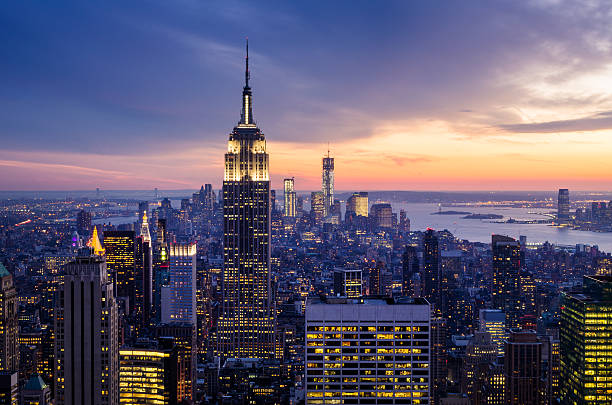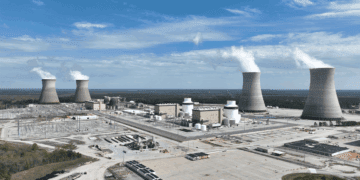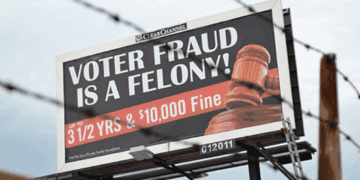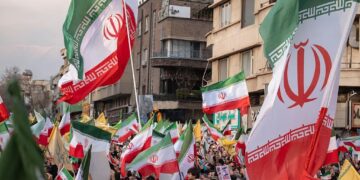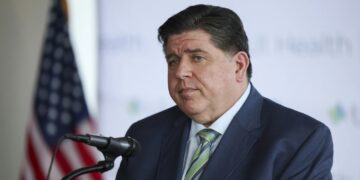By John F. Di Leo, Opinion Contributor
Unlike most countries, the United States are accustomed to two-party elections. While third parties and independent candidacies are legal, it’s almost impossible for anyone other than a Republican or Democrat to win most offices higher than local races, which are typically nonpartisan. (While we have several members of the US House and US Senate who identify as independent or even socialist, even they had to first be elected from major parties in order to become powerful enough – and nearly undefeatable enough – to get away with switching parties in office that way.)
We therefore don’t know how to predict an election when we have three or more major candidates. Our gut tells us that the primary system works – it’s going to be the Republican or the Democrat, because it always is – but there are times when it’s not that simple.
And the November 2025 NYC mayoral election is one of those times.
The Democrats nominated an avowed marxist. Not just a marxist – almost all Democrats are nowadays – but an admitted, loud and proud marxist. That’s unusual. New York state assemblyman Zohran Mamdani is also an Islamofascist – a supporter of the BDS movement and defender of Hamas, the Gaza-based islamic terrorists who shout Death To America and call for genocide against the Jews. This – in New York City especially – is an absolute disqualifier. He can’t possibly win. Right?
So we turn to the Republicans. The Republicans have elected mayors in NYC multiple times. Two terms for Rudy Giuliani, two terms for Michael Bloomberg (who was then reelected to a third term as an independent). But Curtis Sliwa, founder of the Guardian Angels and beloved by New Yorkers for nearly half century of crimefighting work, has no elective experience and cannot self-fund as Bloomberg did, so he may not be a strong enough candidate for these challenging times.
Shocked at being defeated in the Democrat primary, Andrew Cuomo, former governor of the state, refused to give up, and filed as a third party challenger. He has experience, name recognition, and money, which ought to make him electable – but he also has three fatal flaws. As governor, Cuomo was hounded from office as a serial sexual harasser, and more: he forced his taxpayer-funded staffers to research and ghost-write a book for him, not even after-hours, but while on the clock for the state. Even worse still, he is the most notorious of the several Democrat governors who, during the Covid “pandemic,” forced nursing homes to house sick people suffering from that then-highly contagious disease. It was known from virtually the start that Covid-19 was only particularly dangerous to the very old, the very heavy, and the very weak; by situating these patients in the midst of very old and very weak nursing home patients, he had to know he was signing people’s death warrants. This is an unrecoverable error; he can’t possibly win. Right?
Then there’s the incumbent mayor, Eric Adams. Elected on a platform that at least gave lip service to law and order, he earned the disapproval of some local leftists when he admitted publicly that millions of indigent and criminal illegal aliens might not be the best thing for New York. Such heterodoxy from a Democrat officeholder in the days of Intersectionality cannot be tolerated; the Left ensured he could not win his party’s nomination this time, so he filed as an independent.
And finally, we have a hotshot lawyer, Jim Walden, liberal, wealthy and connected, with a focused platform, but probably not famous enough to blow past these other four names.
In a sane world, Cuomo and Mamdani would be disqualified by the voters, if not by the system; the voters would go to the polls to choose between Adams and Sliwa, with Walden as a potential spoiler, probably unelectable but with the possibility of being popular enough to throw the election one way or the other on election night, as independents often can.
Neither Cuomo nor Mamdani have any business receiving a single vote besides their own.
But that’s not how the polling is running.
While polling is difficult in a race like this, it seems likely that the two utterly unacceptable candidates – Cuomo and Mamdani – will be the frontrunners. As summer moves into autumn, the pressure will grow for all but one of the non-Mamdani candidates to drop out so that the opposition to Mamdani can coalesce. But how to tell which of them is strongest? And frankly, if to one or more of them all the rest are alike, why should they?
It is shocking to the rest of the country – heck, to the rest of the world – that New York City, of all places, would consider an islamist connected with such slogans as “Globalize the Intifada.” It’s been less than 25 years since the September 11 attacks killed three thousand New Yorkers and left an altered skyline as an unforgettable reminder.
But there he is, bearing the nomination of the Democrats in a majority Democrat city, barreling forward toward election to become Mayor of New York, a role with more cachet, and more power, than most governors.
It’s easy to see what this situation tells us about New York. That a combination of the importation of foreigners and the driving away of long-term New Yorkers has left America’s most important city with an electorate unfit to choose its own government. That the Democratic party has indeed moved so far to the Left that even advocating communism out loud is no longer a dealbreaker for a majority of that party’s base. That a city once known as the home of a larger Jewish population than any other city on earth (currently second only to Tel Aviv) might intentionally vote for a vocal anti-semite.
To a traditional student of American politics and elections, this makes no sense.
But similarly, the thought that Andrew Cuomo would have a chance at the office is also shocking. While these statistics are harder to be sure of, the nursing home patients who died as a result of the Covid location order at least double, and possibly triple, the number of innocents killed by the islamist terrorists of September 11.
As voters concentrate on the most important issues to them, personally, many will vote to defeat Mamdani out of respect for their relatives and friends lost on Sept 11, and many will vote to defeat Cuomo out of respect for their relatives and friends lost to the governor’s mishandling of the pandemic.
Even the best pollster would be challenged to know how to weight these particular contributions to that particular contest.
The presence of three others on the ballot adds to the complexity. An election isn’t just about the names each voter faces on his ballot on election day. With over three months to go at this writing, this question drives so many other choices. Whose bumper sticker to put on one’s car, whose sign to put in the front yard or front room window? Which campaign to donate to, which campaign to volunteer for? If asked for an endorsement, which one to give, knowing that endorsements can’t easily be taken back and reassigned a month later?
Until it’s truly clear which of the five has a chance, all these decisions get postponed. For weeks, maybe even for months.
And that, of course, can only help the nominee of the party with an overwhelming voter registration advantage: Zohran Mamdani, the candidate of America’s most violent enemies.
For many of us, blessed to live far from New York City, this is a cautionary tale, a reminder of what can go wrong with unrestricted open borders, and with such a lack of respect for history that recent times like the satanic September 11 attacks or the dictatorial 2020 covid protocols could be utterly forgotten by the voters.
It is a cautionary tale of how far our cities have fallen, and how irresponsible so many of our urban voters have become.
And it is a reminder of the dangers of the multiparty election. We think we know what to do if one of the candidates is absolutely, utterly unacceptable. But what if two are? And what if both of the utterly unacceptable ones somehow become the frontrunners?
New Yorkers are faced with a terrifying choice this fall: whether to rightly punish the one for the horrific damage he has already done, or to rightly prevent the other from doing the damage he has promised to do.
And they fear that rejecting both in order to support one of the marginally better alternatives, by splitting the opposition, might enable one of these two worst villains to get in.
If victorious, just think what a mayor can do: the mayor appoints top cabinet posts and their underlings; he appoints the people who run every department in the city, from parades to business licenses, from parks to schools. No decent person should want that power in the hands of either Mamdani or Cuomo. The five borough presidents can mitigate the damage somewhat, but most won’t; the damage that a bad New York mayor can do is incalculable.
And this is all the more important because, in so many ways, New York is America’s big city, the place to which the world travels, for business and pleasure, for shopping and entertainment, for sports and politics. In many ways, the damage that a bad New York mayor can do is infinitely worse for the country and the world than the damage that any other mayor can do.
And so we all watch, and wait, and worry.
And pray.
That the city that was once known affectionately as The Big Apple, the City that Never Sleeps, the Empire City, may someday deserve such affection again.
Copyright 2025 John F. Di Leo
By Janelle Towne, Opinion ContributorOn Friday, schools across Illinois were closed because it was -6 degrees outside. Not because of snow or ice, but because it’s simply too...
Read moreDetails

